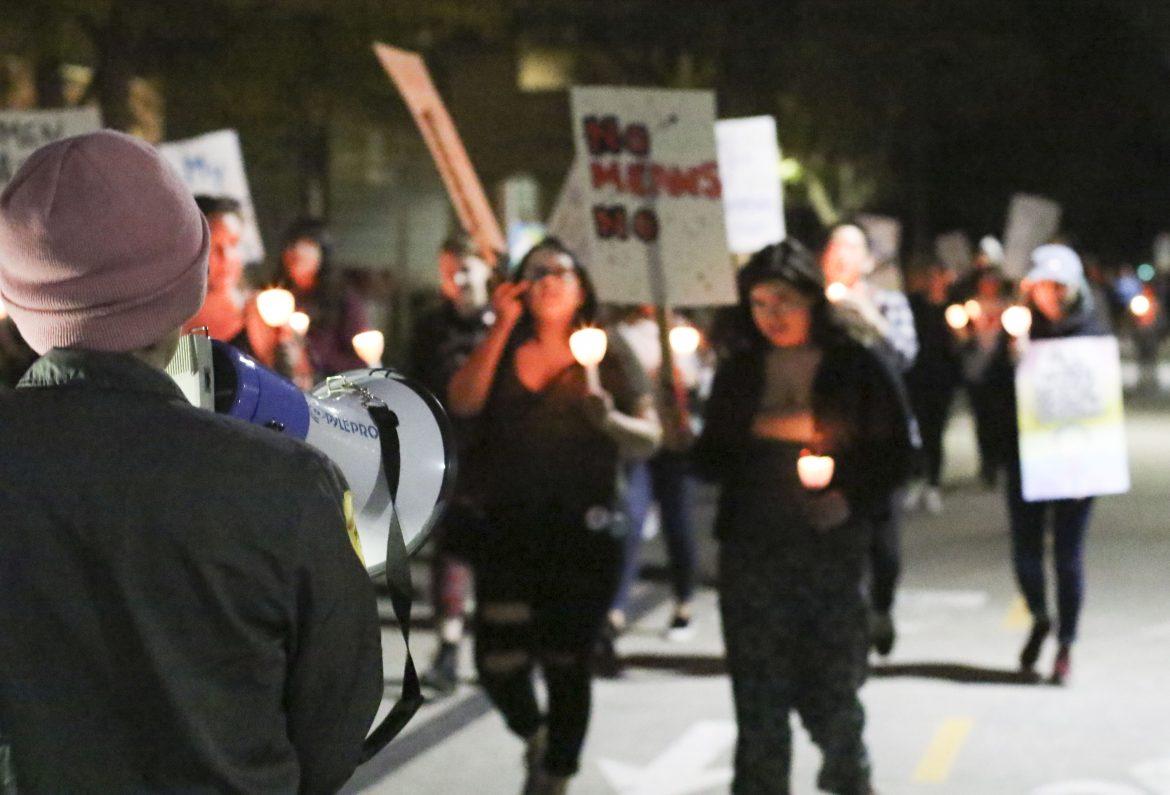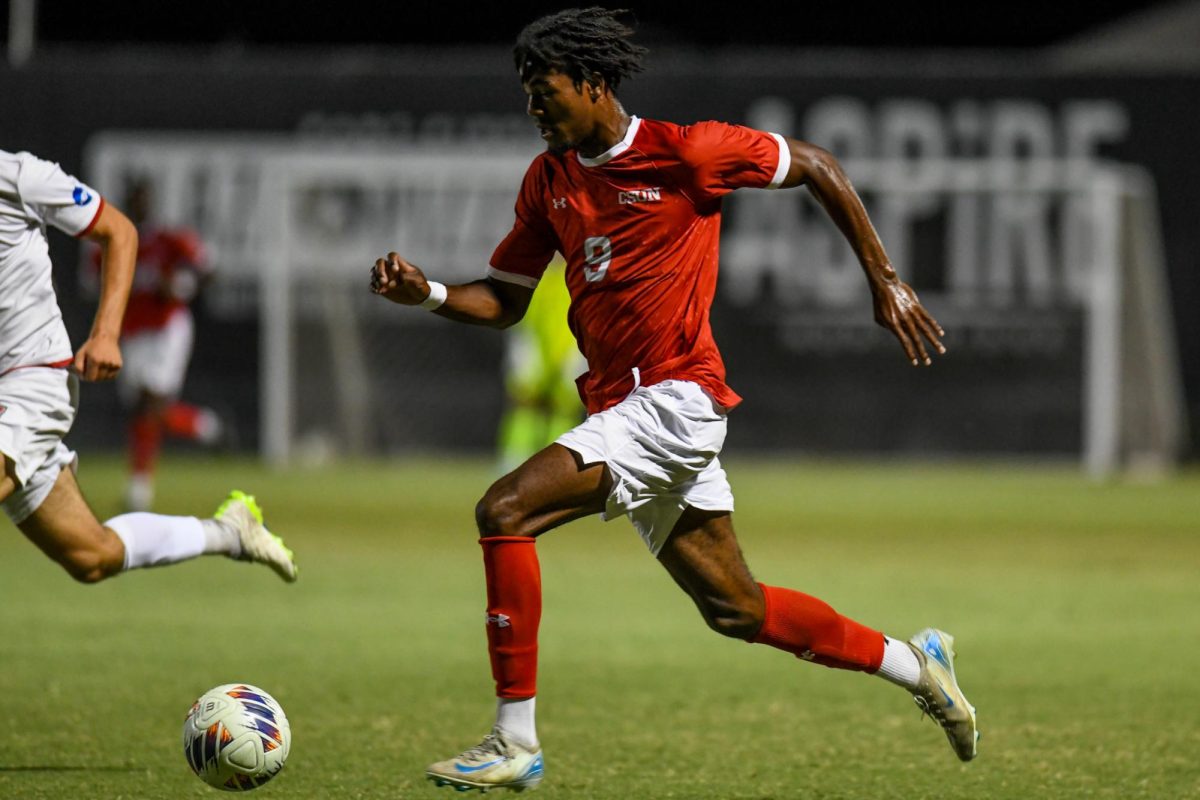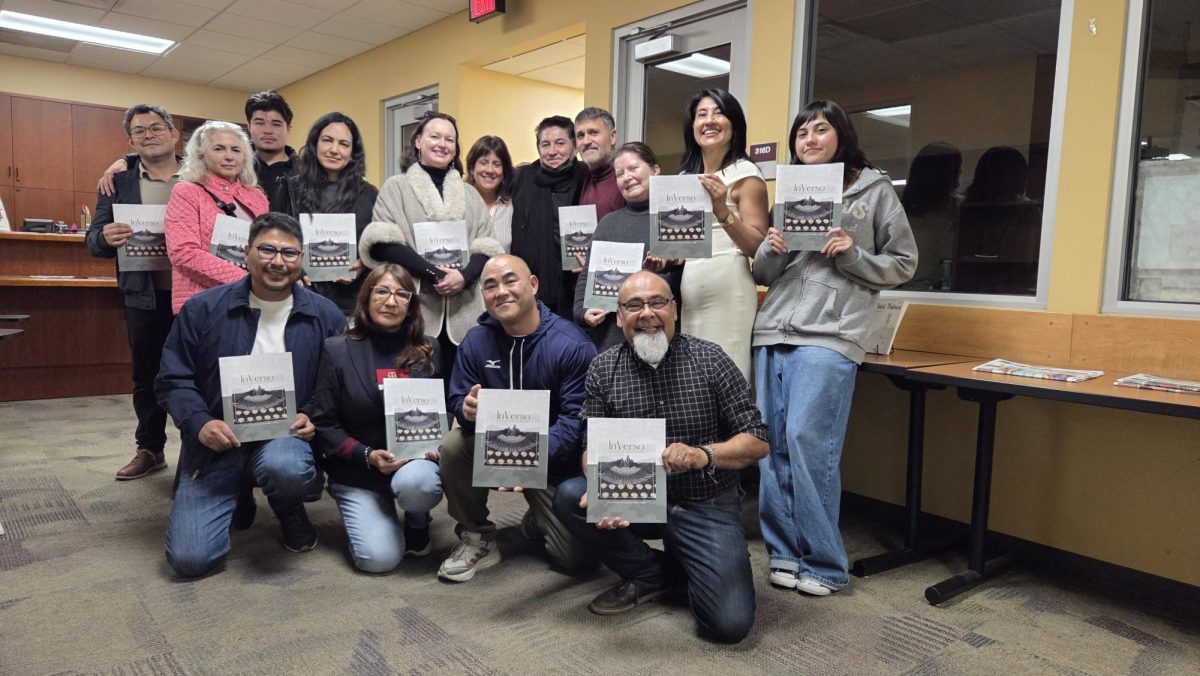A crowd of Matadors joined campuses throughout the world to observe the Take Back the Night rally on Thursday evening. For CSUN, the event is running for its 15th annual year and is dedicated to combating gender-based violence such as sexual assault, rape or domestic violence.
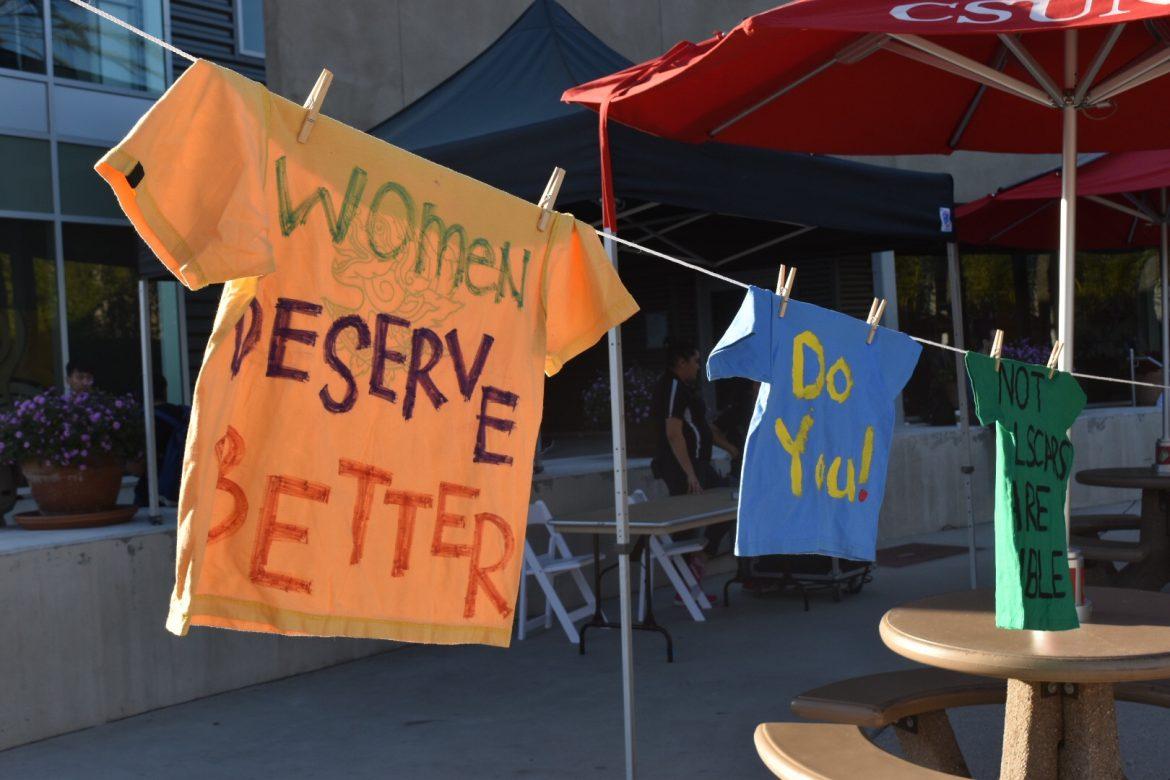
Noticeably spread across Plaza del Sol were clotheslines holding t-shirts, hand-painted with supportive messages for the victims. The clotheslines, tied to the neighboring palm trees, encapsulated the USU stage where a series of speakers, musicians, and poets passionately spoke about the problems, and solutions, for both local and global gender violence.
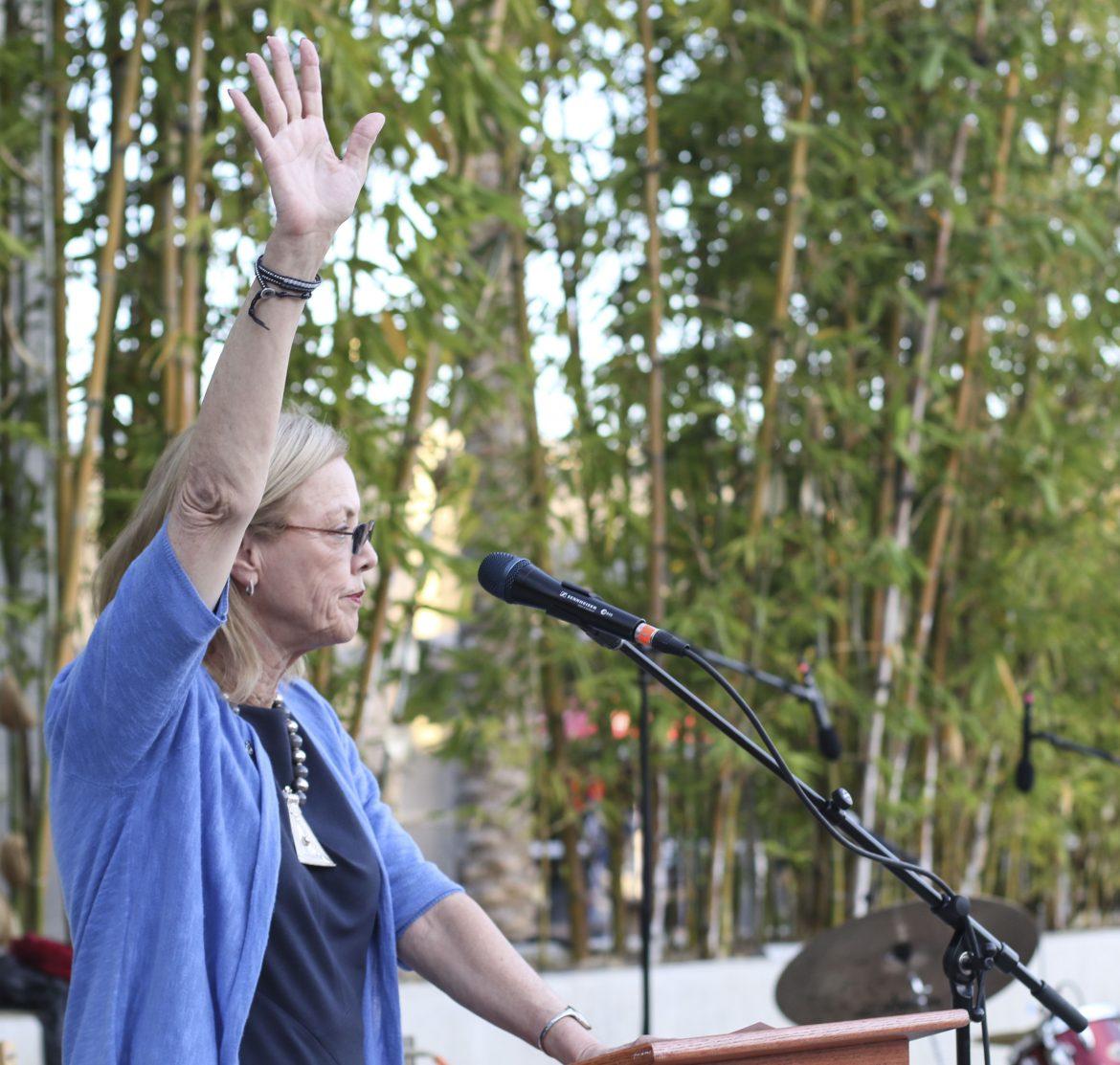
University President Dianne Harrison made an appearance at Take Back the Night, introducing the event to students. During the introduction, Harrison asked for a show of hands from the audience of those who were survivors of sexual assault. More than half of those in attendance raised their hands, including Harrison herself.
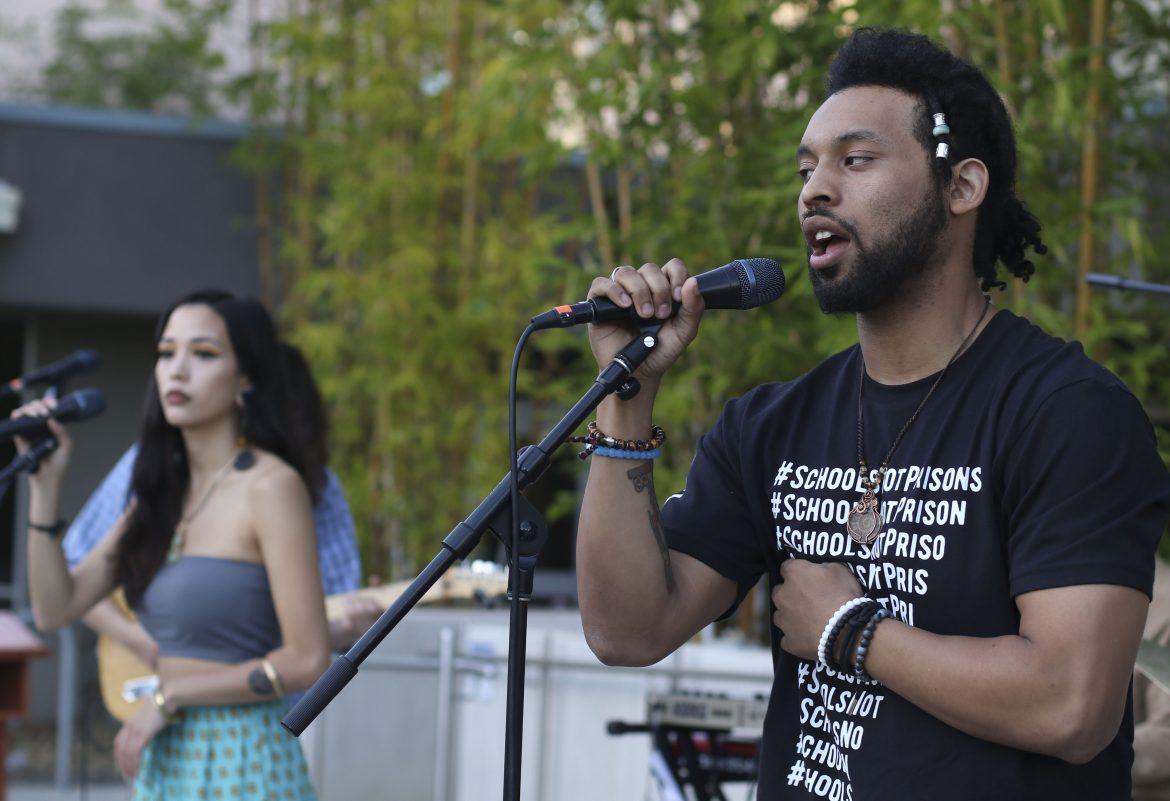
The audience was treated to performances by San Diego-based soul/hip-hop group Weapons of Mass Creation and slam poet Rozlind Silva. Silva, who was a student at UC Santa Barbara during the 2014 Isla Vista mass shooting, delivered a stirring spoken word piece on the male privilege of the shooter Elliot Rodgers, who killed six people based on gender issues.
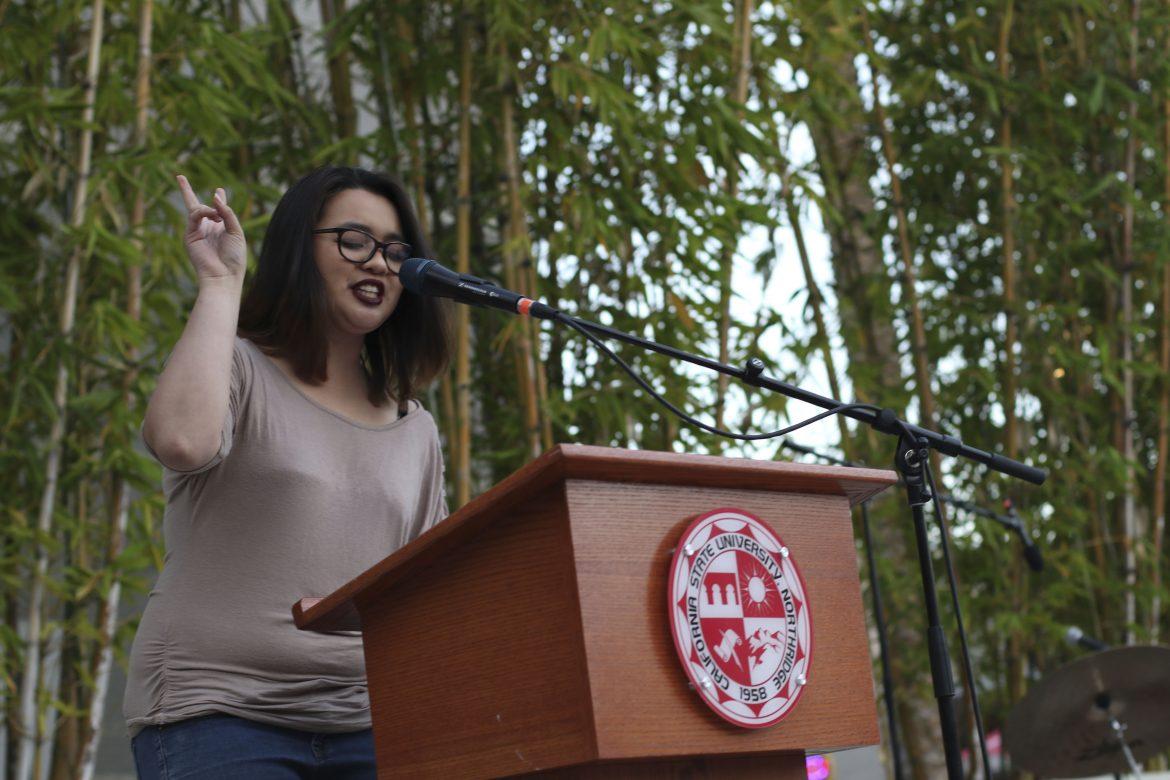
“[Women] face [their] demons before we can hurt others,” Silva said. “But we don’t get on the news.”
At the end of the night, the participants marched from the USU to the Women’s Resource Center, holding lit candles and chanting “take back the night” in unison. At the Women’s Resource Center, a silent vigil was held commemorating the victims of violence. The event concluded with testimonies by participants, as they candidly grappled with their own experiences with gender violence.
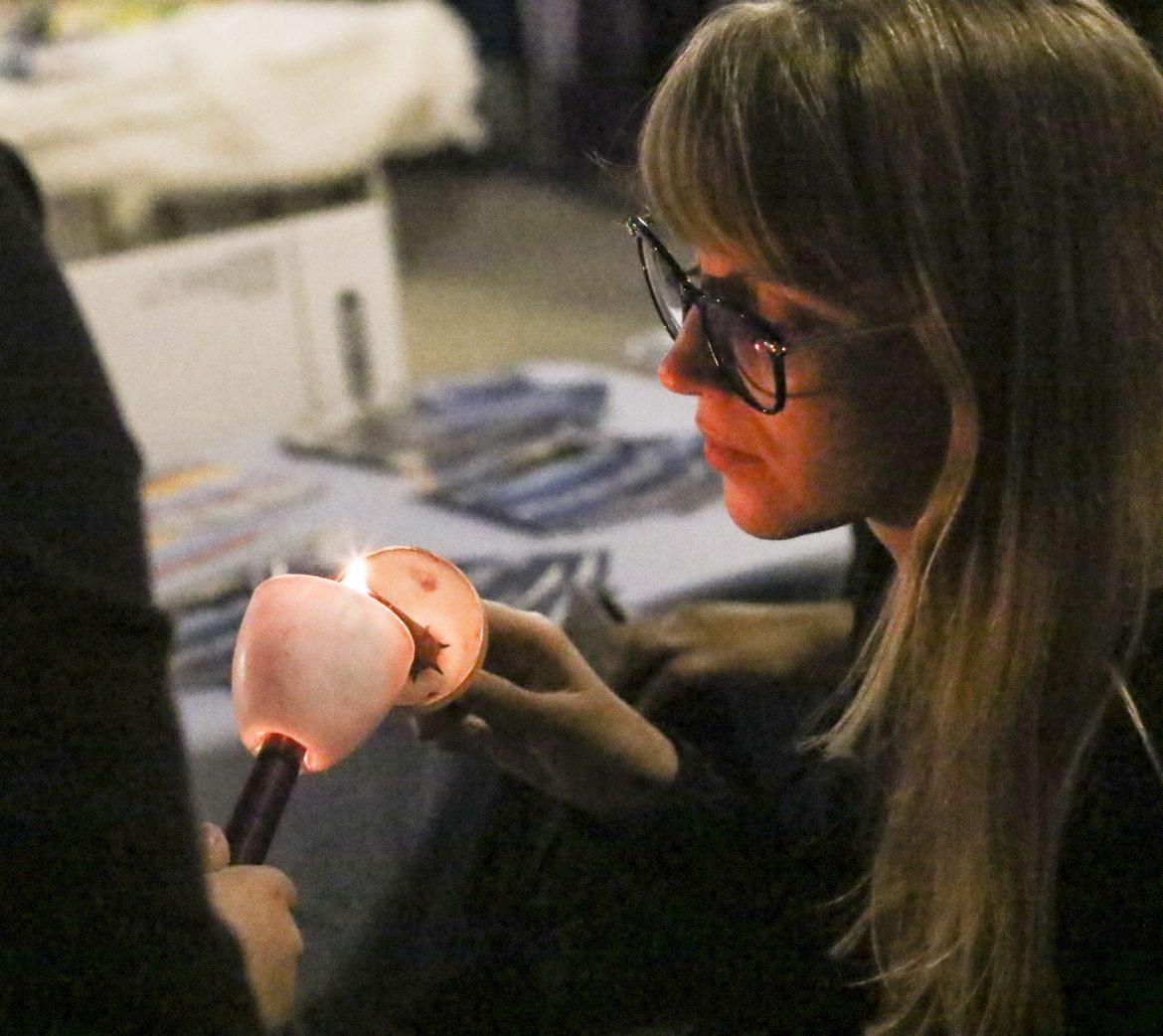
For CSUN, gender violence is all too familiar. In 2016, there were 14 rapes reported on-campus, nine more than the previous year. The amount of on-campus domestic violence incidents reported jumped from two in 2015 to 13 in 2016. Whether these trends are facilitated by more victims coming forward or a general spike in sexual and gender violence is unclear.
To some participants, Take Back the Night is a stark reminder of the trauma of gender violence. For Joaquin Caro, gender violence has plagued the transgender community, including themselves.
”There were seven trans[gender] women who were killed [this past year],” said Caro, who has survived sexual assault multiple times. “With the increasing visibility of trans folks, it seems like it will only increase.”
Caro, who is an outreach specialist for Pride United, a branch of campus organization Strength United that is dedicated to supporting survivors of sexual assault, believes solidarity is imperative to helping victims of gender violence.
“What really saved me was the community,” Caro said. “Love and support made me see that I wasn’t the only one.”
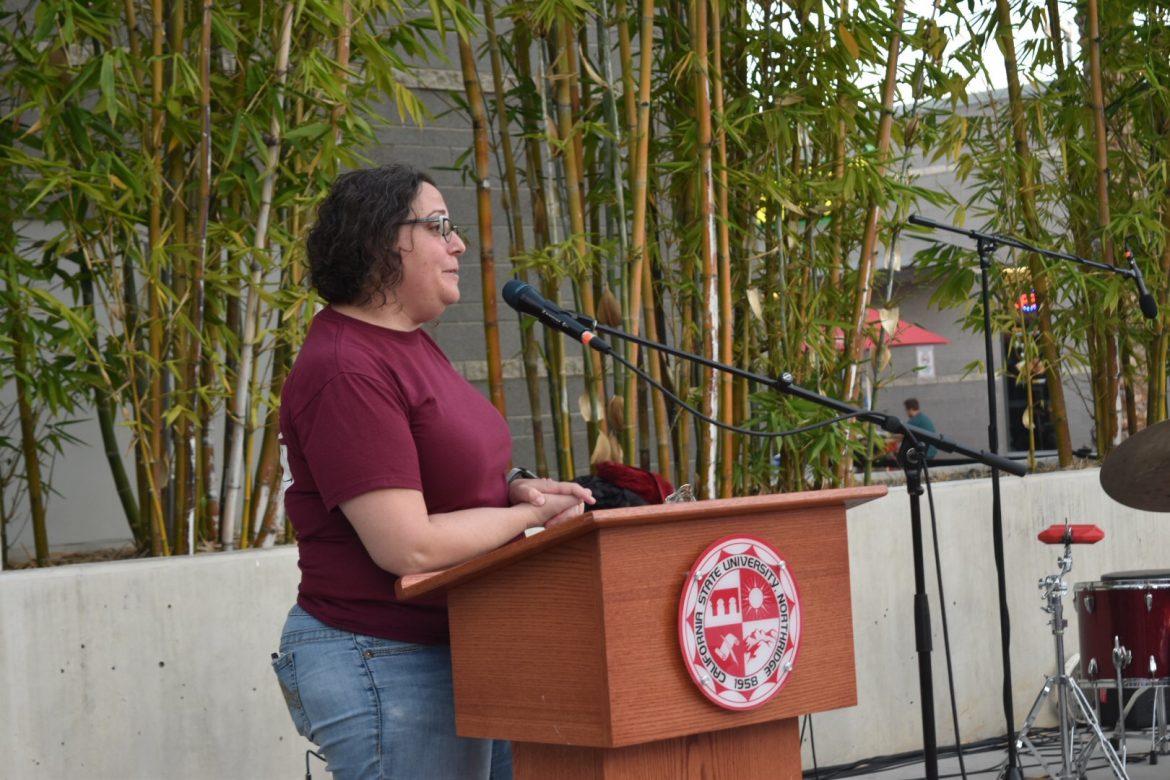
Take Back the Night was hosted by the Women’s Resource Center. The original rallies began in the 1970s as a response to the murder of microbiologist Susan Alexander Speeth. Besides CSUN, Take Back the Night rallies are held at campuses, town centers, and military bases internationally.
